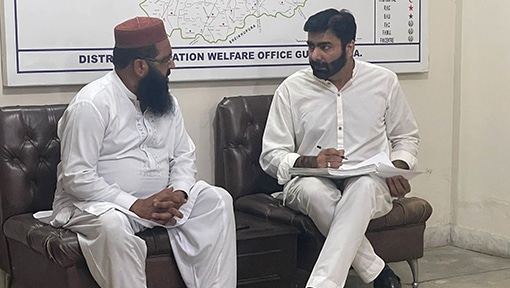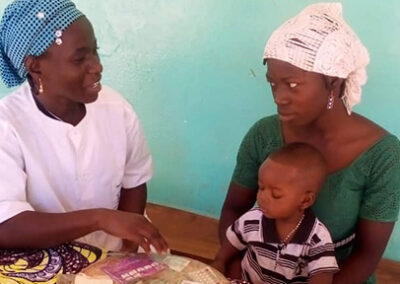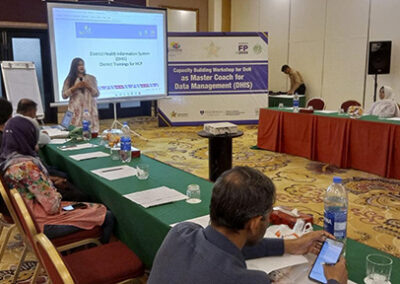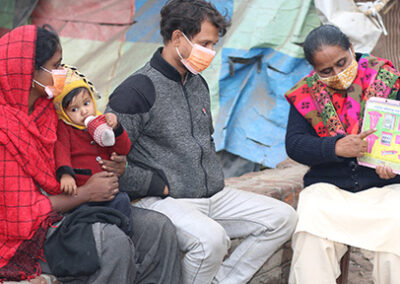
Maulana Abdul Qudoos (left) and Tanzil ur Rehman (right), TCI’s Knowledge Manager in Pakistan, discuss factors that motivate religious scholars to champion family planning to the general public and its importance in Islam.
Contrary to fact, a common prevailing notion in Pakistan is that family planning is not permissible in Islam. Many prestigious Islamic institutes like Al-Azhar University and renowned Muslim scholars have confirmed Islam’s pro family planning position.
Various initiatives and organizations in Pakistan involve Muslim religious leaders and scholars in promoting family planning. These efforts aim to provide accurate information about contraception and reproductive health to the Muslim population while addressing any misconceptions and/or hesitations because of limited understanding of the religion.
To expedite such efforts, the Population Welfare Department (PWD) with support from the Challenge Initiative (TCI) has engaged various Islamic scholars to address and provide trustworthy information on family planning as it relates to Islamic teachings and the Holy Book Quran.
Maulana Shafiq ur Rehman, a local religious scholar and one of the family planning champions of “Rakh Kikranwali,” regularly visits the family planning satellite camps held by the PWD. In these camps, he gives brief talks to women and references Quranic verses to clarify Islamic teachings regarding family planning, especially in the context of breastfeeding. Maulana Shafiq explained that:
We plan everything in our life from clothing to eating but never think about family planning, Islam provides clear guidance on FP and that’s why we gather regularly for two days to discuss and eliminate our misconceptions regarding FP.”
Another religious scholar, Qari Abdul Qudoos, explained his role and contribution in saying:
This is mandatory to provide information to the families visiting basic health facilities and during the FHDs (family health days). I take it as my ultimate responsibility to disseminate such information in view of Islamic teachings. We never discourage from having children but we encourage to have the number of children which can be provided a good upbringing.”
The promotion of family planning methods by Muslim religious leaders in Pakistan is often based on the principles of responsible parenthood, ensuring the well-being of mothers and children, and the importance of making informed choices. Religious leaders emphasize that family planning can contribute to the overall welfare of families by enabling them to space births, have healthier pregnancies, and improve the quality of life for both parents and their children.







